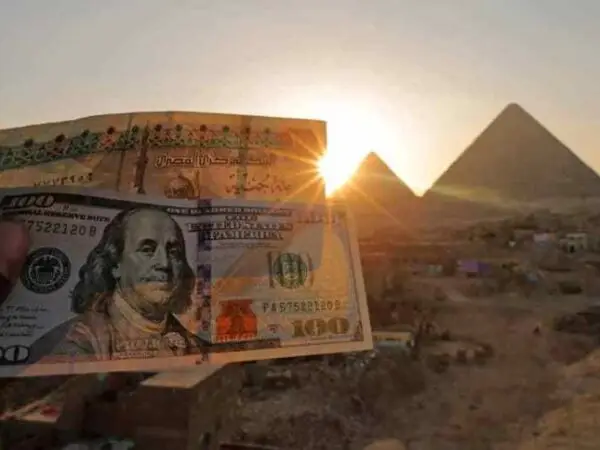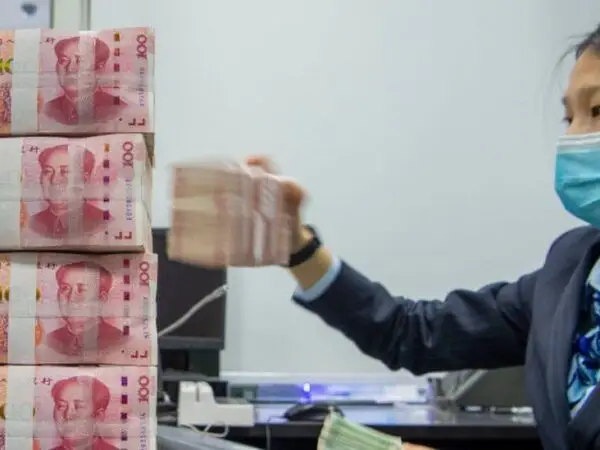Explainer: How deep are Egypt’s economic troubles?
Egypt holds a presidential election on Dec. 10-12 in which Abdel Fattah al-Sisi is set to secure a third term amid an economic crisis that has seen the Egyptian pound tumbling, foreign currency drying up and inflation soaring.
WHAT CAUSED EGYPT’S ECONOMIC WOES?
Some causes date back decades such as failed industrial development due to poor planning and heavy bureaucracy, and export policies that created a persistent trade deficit.
An over-valued currency, weak property rights and institutions, and an overbearing state and military have deterred investment and competition.
A borrowing spree under Sisi has left Egypt with heavy foreign debt. Foreign creditors have been shying away from Egyptian debt, pushing the Cairo government to finance its widening deficit by borrowing domestically even as interest rates surge, spawning even bigger deficits.
This, and an expansion of the money supply, have led to currency depreciation and higher inflation.
The government has sought to get its deficit under control by raising the price of subsidised goods and services, only for inflation to eat into much of the gain.
Foreign investment outside the oil and gas sector has been paltry. Remittances in 2022-23 fell 30% to $22 billion as workers abroad backed away from transfers at the overvalued official exchange rate.
Increasing Suez Canal transit fees and tourism revenue play a crucial role, although the Israel-Hamas war in the neighbouring Gaza Strip threatens to slow tourism growth.
Sisi often blames Egypt’s economic struggles on turmoil following the 2011 popular uprising as well as rapid population growth – the World Bank put annual population growth at 1.7% in 2021. Authorities have also pointed to external shocks including the COVID-19 pandemic and the war in Ukraine.
HOW BAD HAVE THINGS BECOME?
The economy has been growing steadily but at a slowing pace. It grew by an annual 3.9% in the last quarter of 2022 as well as the first quarter of 2023, down from 6.7% in fiscal 2021-22, according to the central bank. Rising population has blunted growth, and many Egyptians say their standard of living has eroded.
An acute dollar shortage suppressed imports and caused a backlog of goods at ports amid restrictions on letters of credit, with a knock-on effect on local industry. Prices for many staple foods have risen much faster than headline inflation, which accelerated to a record 38% in September.
HOW HAS THE MONEY BEEN SPENT?
Beyond outlays on regular costs, Egypt has spent heavily on infrastructure under Sisi. This includes housing, a number of new cities, and rapid road building. The most prominent mega-project is a $58 billion new capital in the desert east of Cairo.
Egypt’s arms imports also surged over the past decade, making it the third-largest importer globally, according to the Stockholm International Peace Research Institute.
Officials say they have upped spending on social programmes for the poor, including a cash handout scheme that covers some five million families, though critics say the welfare is insufficient to protect living standards.
WHAT SUPPORT CAN EGYPT DRAW ON?
Both Western and Gulf states have broadly viewed Egypt under Sisi as a lynchpin of security in a volatile region.
Cairo received billions in deposits and investments from Gulf allies including Saudi Arabia and the United Arab Emirates after the shock touched off by Russia’s invasion of Ukraine.
But Gulf Arab states have toughened conditions for injecting new money, increasingly seeking investments that provide a return. Though they have expressed solidarity with Egypt since the outbreak of the Gaza crisis, no new aid has been announced.
The IMF is in talks with Egypt to expand a $3 billion, four-year financial support package signed in December 2022. It had halted disbursements after Egypt fell behind on pledges to adopt a flexible exchange rate and to shrink the state and the military’s role in the economy.











